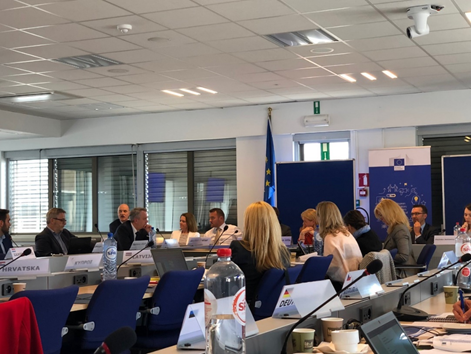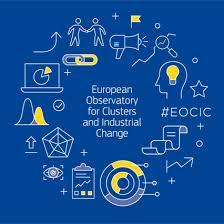Second European Cluster Policy Forum outcomes: the future of cluster labelling, a cluster mobility scheme and a European Cluster Week
On 26 April 2018, the European Commission met with 19 EU country ministry representatives in Brussels for the second edition of the European Cluster Policy Forum.
Invited experts took part and participants gave practical examples for the Commissions future involvement in:
- the labelling of clusters
- projects promoting cluster manager mobility
- the application of EU State aid rules
Outcomes of the 2nd European Cluster Policy Forum
- EU countries gave feedback on 3 possible scenarios involving the Commission in European cluster labelling.
- All EU countries recognised that cluster managers' training would improve cluster performance across the EU and responded well to a European cluster mobility scheme (Erasmus for Clusters).
- EU national authorities endorsed the organisation of a European Cluster Week with various anchoring events in several EU countries between November 2018 and May 2019.
Background
Most EU countries believe that cluster excellence labelling improves cluster management, increases motivation among clusters, and strengthens cluster internationalisation and competitiveness. The meeting highlighted, however, that national labelling schemes for cluster excellence differ significantly.
There is already a pan-European labelling scheme called the European Cluster Excellence Initiative (ECEI), run by a private organisation VDI/VDE-IT through the ‘European Secretariat for Cluster Analysis (ESCA)’. EU countries such as Belgium, Hungary, Poland and Spain, which have their own national schemes presented them as complementary to the ECEI.
The European Commission must decide on its future involvement in cluster excellence labelling. EU national authorities were asked to give feedback on 3 possible scenarios:
- end the Commission’s support to the existing labelling scheme
- revise the labelling process and continue promoting the labelling scheme as part of the European Cluster Excellence Programme
- integrate the labelling process at European Commission level through a contract operated by a service provider.
The idea for a European cluster mobility scheme was generally welcomed by EU countries. They acknowledge that cluster manager training will improve the performance of cluster organisations.
Existing schemes and projects for cluster managers at several levels include Erasmus for Young Entrepreneurs, Cluster4Smart, Clusterix 2.0 and Innovation Express. A pilot to support cluster mobility (Erasmus for Clusters) needs further development. It should use what is already in place and possibly link it to training for not only cluster managers but also cluster members (e.g. accelerators, incubators, research centres, etc.).
Some EU countries mentioned that implementing State aid rules for cluster policy and SMEs' innovation support is, at times, complex. Interventions showed that the implementation of EU State aid rules (especially by EU countries in the Working Group on State aid Modernisation) would benefit from a more detailed discussion and an exchange of best practices.
Finally, most EU countries welcome the idea of a European Cluster Week in the near future. Several EU countries (e.g. Austria, Denmark, France, Germany, Romania, Slovenia and Spain) have already organised cluster-related events and conferences at national level. They would be happy to group them at the European level. EU countries believe that a European Cluster Week will give European clusters more visibility and opportunities to develop new businesses across borders and sectors.

Next Edition
The next European Cluster Policy Forum – with the support of the ‘European Observatory for Clusters and Industrial Change’ (EOCIC) – will take place on 15 November 2018 in Brussels and focus on entrepreneurship and scaling-up.
For general enquiries about the upcoming European Cluster Policy Forum, please contact GROW-CLUSTERS [at] ec.europa.eu
Reference documents
Presentations of the speakers:
Session 1: Cluster Excellence
- European cluster labelling system - Helmut Kergel
- Agrupación Empresarial Innovadora (AEI) label of excellence - Nuria García González
- Hungarian Cluster Accreditation System - Peter Keller
- An advanced certificate in cluster management as a path towards cluster excellence: feedback from an experience with France Clusters - Véronique Renard
- The Cluster Management Standards scheme - Justyna Choińska-Jackiewicz
Session 2: Towards ERASMUS for Clusters - Mobility schemes for cluster managers
- Innovation Express - Kaspar Nielsen
- Clusterix 2.0 - Lucia Seel
- Cluster4Smart project - Juan Jose Ortega and Alain Tubiana
- Erasmus for Young entrepreneurs - Katerina Nejdlova
Session 3: State aid in the context of cluster policy
- EU State aid rules for clusters – Simon Lang
- State aid experience in the context of cluster policy in Austria - Maria Bendl
- State aid issues in practice - Bernard de Potter and Karel de Corte
- State aid experience in the context of cluster policy in Poland - Beata Lubos
